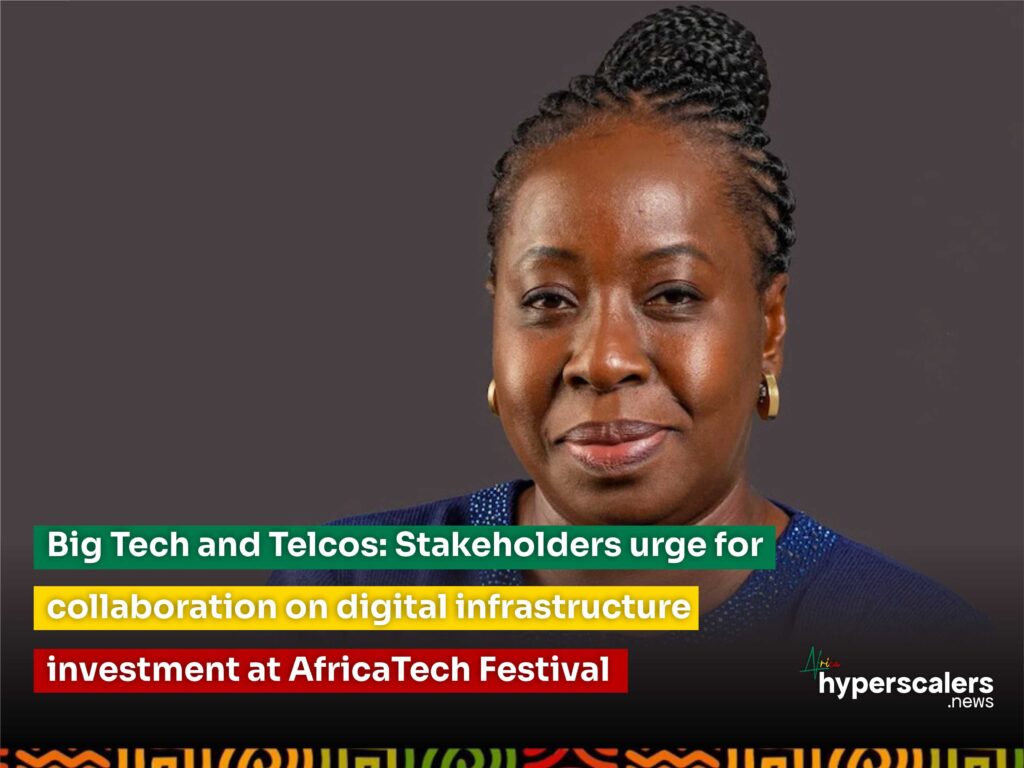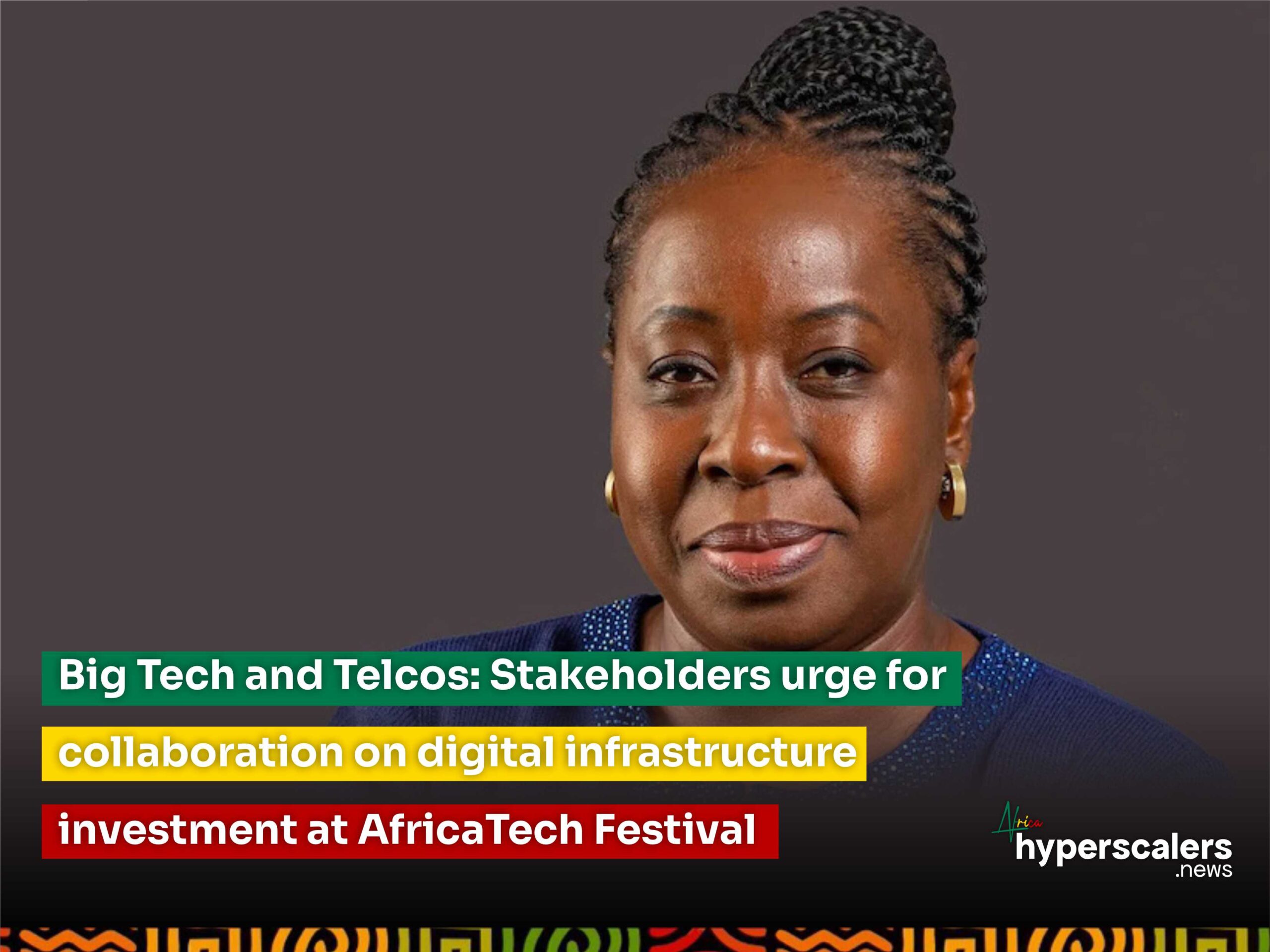Stakeholders at the AfricaTech Festival held last week, in Cape Town, have urged for collaboration on digital infrastructure investments in Africa.
During a keynote panel on theme “Big Tech and Telcos: Collaborating on Digital Infrastructure Investment,” a diverse group of infrastructure operators, content providers and regulators discussed opportunities, challenges, and investments shaping the continent’s digital future.
Panelists include Funke Opeke, Managing Director of MainOne; Tom Saffell, Director of Product Management at YouTube Infrastructure; Ambassador Oke Kehinde Afolabi, Representative of the African Union 6th Region; Oladejo Olawumi, Director of IT Infrastructure Solutions at Nigeria’s National Information Technology Development Agency (NITDA), and Paula Gilbert, Editor of Connecting Africa, who moderated the session.
Opeke emphasized the importance of public-private partnerships in expanding digital infrastructure. She pointed out that without subsea cables, the continent would not have seen the remarkable growth in connectivity witnessed over the past decade. She also highlighted how the African Continental Free Trade Area (AfCFTA) agreements have facilitated improved cross-border trade, contributing to a more favorable business environment. However, she cautioned that regulatory inconsistencies and security concerns still pose significant barriers to further investment, calling for more streamlined regulations and an enhanced ease of doing business across the continent.

Speaking on the regulatory perspective, Oladejo Olawumi of NITDA outlined the Nigerian government’s efforts to create frameworks for seamless digital operations, including a digital infrastructure framework aimed at improving citizen access to government services through digital channels. He stressed the need for local data storage in Nigeria, noting that this would not only ensure data security but also create jobs and support economic growth. Olawumi emphasized the importance of localizing data to promote data sovereignty and enhance the country’s digital economy.
The speakers agreed that investment in Africa’s digital infrastructure is accelerating, with Mobile Network Operators (MNOs), cloud providers, and Over-the-Top (OTT) services making significant contributions. MNOs have been the largest investors in the past decade, but panelists acknowledged that cloud providers and OTT platforms are increasingly investing directly in cables, data centers, and edge infrastructure. Additionally, the rise of Low-Earth Orbit (LEO) satellites, with companies like Starlink leading the charge, is expected to further improve connectivity across the continent. Amazon’s Kuiper is also preparing to enter the market, underscoring the growing recognition of Africa’s digital potential.
The speakers discussed how to facilitate meaningful investments in Africa’s digital infrastructure. Ambassador Afolabi pointed out that African regulators are moving away from punitive approaches and embracing shared risks and experimentation. He highlighted the success of regulatory sandboxes, which allow innovators to test new technologies in a controlled environment. Several African countries have already adopted this approach, which encourages innovation while providing a safe space to work out regulatory challenges. Despite these advances, the panel agreed that there is still room for improvement in terms of regulatory consistency and knowledge transfer to build local capacity.
Tom Saffell of YouTube discussed the platform’s investment in improving access for creators and users across Africa. YouTube has focused on creating low-data versions of videos, mobile apps, and mobile web platforms to ensure efficient access to content. Saffell also emphasized the role of spectrum-sharing policies in improving connectivity, highlighting how such initiatives can expand access and drive inclusion.
In closing, Opeke encouraged African countries to develop their own regulatory frameworks, drawing from global best practices to create effective policies tailored to local needs. She praised Rwanda for its coordinated approach to digital infrastructure development, which has helped lift many of its citizens out of poverty. Opeke urged African governments and regulators to focus on its core issues, such as expanding basic internet access.
Ambassador Afolabi reiterated the importance of regional collaboration, stressing the role of the African Union (AU) in aligning regulatory frameworks and bringing together key stakeholders to enhance digital connectivity and investment across the continent. He emphasized that Africa must continue working together to overcome challenges and unlock the full potential of its digital infrastructure.
Saffell wrapped up the session by noting that the real value of digital infrastructure lies in its ability to drive local economic growth, empower creators, and improve access to information and services. He expressed YouTube’s commitment to supporting the growth of Africa’s digital ecosystem by enabling creators and fostering innovation.





